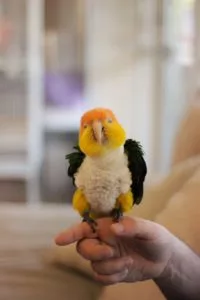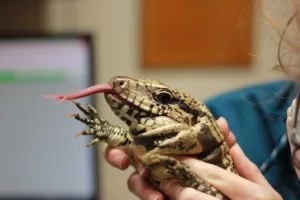Birds and other exotic pets are becoming increasingly popular in the United States. Although most households have a cat or dog, more people are choosing exotic species. Exotics can be great for a variety of lifestyles, and some species make great pets for children. Here are some simple reasons for choosing an exotic pet:


There are so many different species that owning an exotic animal can be an incredible learning experience.
Exotic pets are fascinating. With their unique behaviors and incredible social interactions with each other and with us, they really can teach us all kinds of new information. But it’s a Catch-22. Before you embark on the journey to exotic pet ownership, be sure to learn enough about the social, nutritional, and environmental needs of the exotic pet species you are considering so that you don’t end up with a pet that needs more than you. sold for.
Many exotic species do not take up much space.
For many city dwellers who live in cramped, small apartments, a pet such as a dog or cat that requires a lot of space is not an option. A small mammal (such as a hamster, gerbil, guinea pig, chinchilla, or rat) or even a reptile or small bird that can live in a relatively small cage, may be a more feasible option. Ask anyone who owns one of these smaller exotic species, and they’ll tell you that these pets can provide the same love and companionship that a larger dog or cat can offer.
Some people are allergic to furry pets.
Although many people would like to have a dog or cat as a pet, they often cannot because they or their family members are allergic to the dander that furry pets carry on their fur. These seemingly unfortunate people can still have a loving pet, however, if they choose a reptile (such as a lizard, turtle, tortoise, or snake) that does not have hair or scales on its skin. If they are not allergic to feathers, they can also choose a bird. So don’t despair if you are allergic to hair!
Most exotic pets don’t need to be walked.
For many busy pet owners who work long hours, owning a dog that needs to be walked every few hours is not an option because they can’t get home to do it and don’t have the money to pay a dog walker. The good news is that most exotic pets don’t need to be walked. Although they need time out of their cages to socialize and have a good quality of life, most birds, small mammals, and reptiles can fit into our busy human schedules when it comes to “time out of cage.” In general, as long as we set aside some time to interact with them every day, the time we do for most exotic pets can be flexible.


Some people just want pets to live a long time.
People comment all the time that they can never have a pet because they are so attached to the pet that they can’t bear to lose it. Of course, no pet – exotic or otherwise – lives forever. However, some species, such as larger birds and some reptiles, can live 20-40 years in captivity. Certainly, these animals must be cared for properly: fed appropriate diets, housed according to the needs of the species, and receive regular medical check-ups to live up to their genetic potential.
But for many people who have grieved the loss of a relatively shorter-lived pet such as a dog, cat, or small mammal or small bird, the prospect of having a potentially very long-lived pet can be be very attractive. Again, this is a double-edged sword because before you rush out to buy or adopt that reptile or large bird, you should seriously consider whether you have the lifestyle, finances, and future provisions to support a pet that may outlive you. !
Once you’ve decided that an exotic pet is the right choice for you, make sure you book them an initial health exam with an exotic vet to ensure their health. Exotic pets need annual exams and lab work, just like cats and dogs. The truth is, when owned responsibly by people who take time for their special dietary, environmental, and social needs, all kinds of exotic pets can be loving, interactive, and charming creatures. together!


